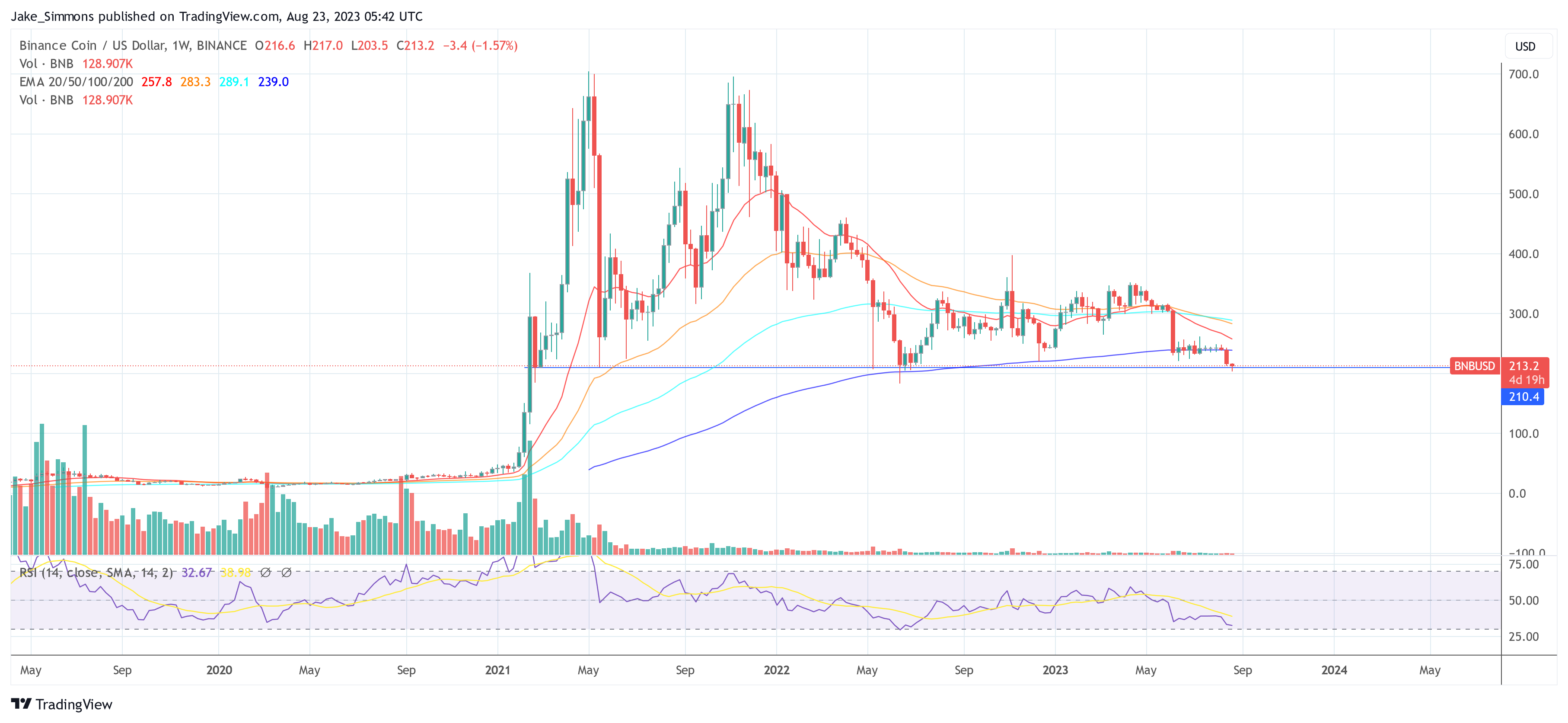For months now, ex-SEC enforcement official John Reed Stark has been vocal about his speculation that a US Department of Justice (DOJ) action against Binance is imminent or has already been filed under seal. While these assertions haven’t yet materialized, Stark has taken to X once again, offering “yet another new reason” to bolster his claim.
Binance’s Alleged Ties To Sanctioned Banks
This time, Stark references a recent Wall Street Journal report, shedding light on the exchanges’ connections with sanctioned banks and its involvement in large-scale ruble-to-crypto trades. He mentioned, “The WSJ reports that via layers of intermediaries, Binance’s clients can turn funds at sanctioned banks into balances at Binance… Is this what it means to run an international money laundering service? IMHO, Yes.”
The report claims that Russians can exchange rubles for digital currencies, particularly stablecoins that are pegged to the dollar, which can then be swapped for fiat currencies at brokerages abroad or transferred into other crypto wallets as a form of payment. According to WSJ, the US DOJ is currently investigating whether Binance may violate US sanctions against Russia.
The broader crypto and legal community’s watchful eyes have been tracking emerging allegations against the exchange led by Changpeng Zhao (“CZ”). A comprehensive 136-page SEC complaint has suggested a “massive market manipulation scheme at Binance.” It alleges that certain Binance and CZ controlled entities might have co-mingled billions in customer funds, exposing investor assets to undue risks.
Another separate 76-page complaint from the U.S. Commodity Futures Trading Commission paints a picture of a “vast criminal enterprise at Binance,” emphasizing its potential evasion of pivotal anti-money laundering procedures.
Adding to the discussion, the esteemed XRP community attorney, John E Deaton, responded to Stark’s tweet, hinting at his anticipation regarding the DOJ’s delayed action. He queried, “I’m curious if you (or Joe) have an opinion or theory as to why the DOJ has not yet filed? Is there a strategic reason to wait?”
Joe Carlasare, contributing to the discourse, said, “I can’t come up with a good reason for the delay, but I still believe it’s coming.”
Stark, echoing the sentiments of the community, admitted, “John and Joe, I am equally confounded — though pleased (and relieved) that my take is aligned with such fine gentleman and legal scholars like yourselves.”
Too Big To Jail?
While Stark’s previous claims have yet to come to fruition, a recent report from Semafor has intensified concerns. It suggests the DOJ is carefully weighing potential fraud charges against Binance, balancing the legal action’s repercussions on the broader crypto ecosystem. Insider sources have alluded to fears reminiscent of a “bank run,” akin to what was witnessed with the now-bankrupt FTX platform.
This scenario could precipitate overwhelming withdrawal requests, jeopardizing consumer funds and potentially shaking the Bitcoin and crypto markets at large. In an attempt to avert such a scenario, alternative legal avenues, including levying fines or deferred/non-prosecution agreements, are being supposedly deliberated.
Though no formal indictment is on record, the increasing speculations and escalating allegations highlight the pivotal crossroads at which Binance stands. Remarkly, the BNB price has become under pressure in recent days again. At press, BNB stood at $213, risking a deeper drop.







